1. Kanye West
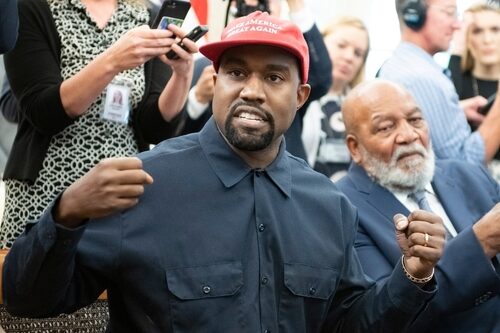
Kanye West is known for stirring controversy, but his political foray took many by surprise. His vocal support for Donald Trump, including that infamous White House meeting with a MAGA hat, shocked fans who once admired him as a cultural rebel. To some, Kanye represented a rare voice challenging liberal orthodoxy in Hollywood. To others, he became a disappointing figure seemingly aligning with divisive politics.
Kanye later launched his own 2020 presidential campaign, further blurring the line between celebrity and politics. While his run was disorganized and widely criticized, it underscored how his actions made him a political figure whether he meant to or not. His stances on religion, mental health, and race continue to fuel debate. In the process, Kanye became both a cautionary tale and a cultural symbol of political disruption.
2. Taylor Swift
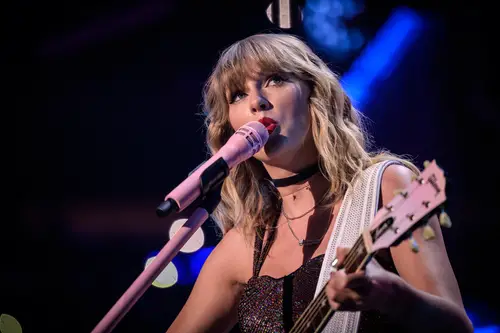
Taylor Swift spent much of her early career carefully avoiding politics, but that changed in 2018 when she broke her silence to endorse Democratic candidates in Tennessee. Her Instagram post encouraging voter registration reportedly caused a massive spike in sign-ups, turning her into an unlikely voting-rights symbol. Since then, conservatives and liberals alike have debated her role in shaping young voters’ choices. Whether she wanted it or not, her decision to speak out put her squarely in the middle of America’s political conversation.
Swift later became a frequent target of right-wing commentators, some of whom accused her of pushing progressive values under the guise of pop stardom. On the flip side, many Democrats embraced her as a voice for younger generations, especially around LGBTQ+ issues. This polarization cemented her as a political symbol even though she insists she’s just speaking her truth. For many fans, her activism feels like a natural evolution of her platform rather than a strategic move.
3. Colin Kaepernick
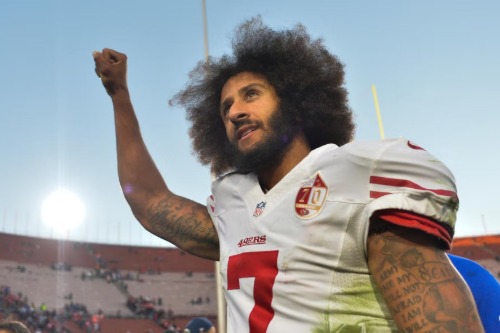
When Colin Kaepernick first knelt during the national anthem in 2016, he said it was to protest police brutality and racial injustice. What started as a personal decision quickly turned him into one of the most divisive figures in sports. Supporters saw him as a courageous activist using his platform to speak truth to power. Critics accused him of disrespecting the flag and the military, even though he clarified his intentions.
His protest spread across the NFL and beyond, igniting nationwide debates about patriotism and free speech. Politicians, including Donald Trump, weighed in and used Kaepernick as a lightning rod for cultural battles. Nike’s decision to feature him in an ad campaign further solidified his place as a political symbol. Today, Kaepernick is as much an activist as he is an athlete, with his name still sparking heated conversations.
4. Clint Eastwood
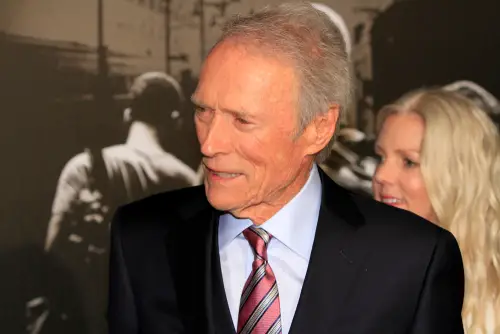
Clint Eastwood has long been admired as an American film icon, but his political involvement often overshadows his Hollywood legacy. His unexpected 2012 Republican National Convention speech, famously featuring an empty chair meant to symbolize Barack Obama, made him a political talking point. The moment was mocked and meme-ified, cementing Eastwood as a cultural symbol for conservative dissent. For a generation, he stopped being just “Dirty Harry” and became a political figure in his own right.
Though he’s generally considered a libertarian, Eastwood has supported both Republican and Democratic candidates over the years. This unpredictability made his political voice harder to pin down, adding complexity to his image. Still, that empty-chair speech is what most people remember when discussing his politics. It showed how a Hollywood legend could unintentionally become part of the political zeitgeist.
5. Bruce Springsteen
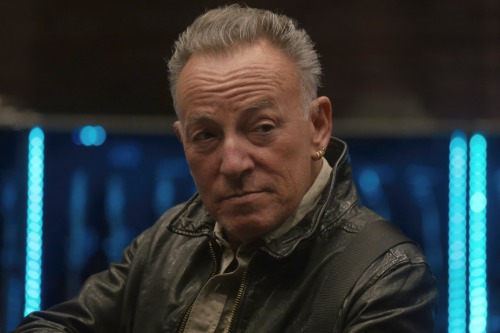
Bruce Springsteen never set out to be a political mascot, but his working-class anthems often got interpreted that way. His song “Born in the U.S.A.” was famously used by Ronald Reagan’s campaign, despite being a critique of the treatment of Vietnam veterans. Springsteen later clarified the song’s true meaning, but by then it was already a political football. Politicians kept trying to borrow his music and image to project patriotism.
Over time, Springsteen embraced a more outspoken political stance, supporting Democratic candidates and causes. His connection to themes of labor and ordinary Americans made him a cultural stand-in for blue-collar values. He often found himself caught between fans who saw him as apolitical and those who viewed him as a liberal voice. Even unintentionally, he became a symbol of America’s struggle over identity and class.
6. Lady Gaga

Lady Gaga has always been theatrical, but her activism pulled her directly into political conversations. Her outspoken support for LGBTQ+ rights and performances at events like Joe Biden’s inauguration made her a cultural emblem of progressive politics. What started as advocacy for her “Little Monsters” evolved into national visibility as a political voice. She didn’t just sing about acceptance—she campaigned for it.
Her meat dress and bold public stunts initially made people see her as just eccentric. But over time, her unwavering commitment to social justice reframed her as more than an entertainer. Both fans and critics now use her as shorthand for progressive cultural movements. In the process, Gaga became an accidental yet powerful political symbol.
7. Arnold Schwarzenegger
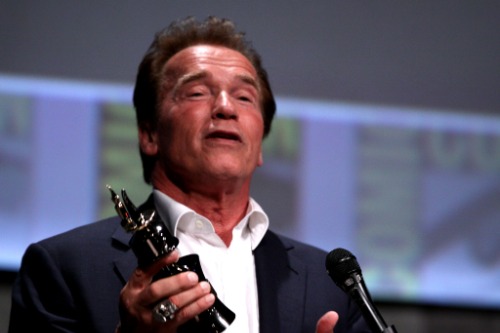
Arnold Schwarzenegger transitioned from Hollywood action hero to California governor, surprising many who once only saw him as the Terminator. While his campaign was intentional, the way he became a lasting political symbol was less so. His time as a Republican governor in a deeply blue state made him a fascinating outlier. People began seeing him as a bridge between Hollywood glamour and political influence.
After leaving office, Schwarzenegger continued weighing in on issues like climate change and democracy. His viral videos criticizing Donald Trump and defending institutions showed he had become a symbolic elder statesman. Ironically, his strong accent and Hollywood persona made his words resonate even more. He represents how a celebrity can embody bipartisan values despite party labels.
8. Roseanne Barr
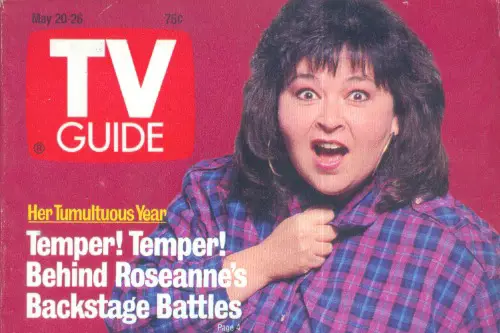
Roseanne Barr’s sitcom made her a relatable star, but her rebooted show in 2018 thrust her into political territory. The show’s portrayal of a Trump-supporting family resonated with some viewers who felt underrepresented. Suddenly, Barr herself was treated as a stand-in for working-class conservatism. She didn’t just play the character—she became the debate.
When Barr made racist remarks on Twitter, the backlash was swift and ABC canceled the show. The fallout cemented her as a controversial political symbol more than just a comedian. Supporters framed her as a victim of cancel culture, while critics pointed to her harmful rhetoric. That tension made her a flashpoint in America’s cultural and political battles.
9. LeBron James
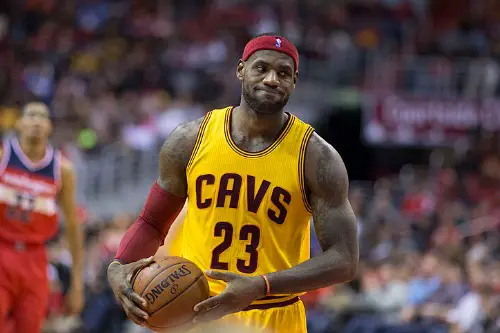
LeBron James is one of the greatest athletes of his generation, but his off-court activism elevated him into politics. He spoke out against police brutality, opened a school for at-risk kids, and wasn’t afraid to criticize politicians directly. His feud with Donald Trump made headlines, turning basketball into a political arena. Suddenly, LeBron wasn’t just a sports star—he was a political voice.
Supporters praised him for using his platform responsibly, especially for racial justice causes. Critics accused him of hypocrisy or told him to “shut up and dribble,” a comment that only made him more of a political symbol. LeBron leaned into the moment, launching campaigns to fight voter suppression. Whether he wanted to or not, he became an embodiment of athlete-activism.
10. The Dixie Chicks (now The Chicks)
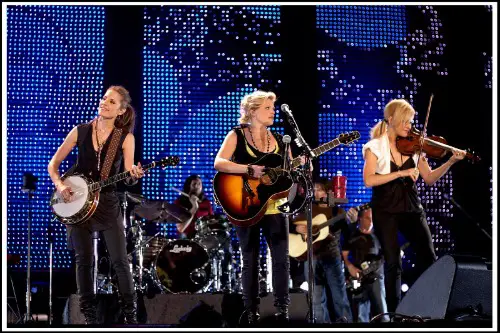
In 2003, the Dixie Chicks were at the top of the country music world—until a comment about George W. Bush changed everything. Lead singer Natalie Maines said she was ashamed Bush was from Texas, sparking a massive backlash. Radio stations banned their music, and former fans destroyed their albums. Practically overnight, they became symbols of dissent in a politically charged era.
The group didn’t set out to be martyrs for free speech, but that’s what they became. Their experience highlighted the risks celebrities take when they speak out. Years later, they rebranded as The Chicks, partly to distance themselves from past controversies. But their story remains a prime example of how quickly fame can turn political.
11. Kid Rock
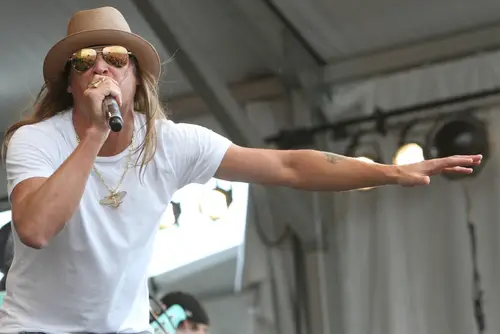
Kid Rock’s career started with rap-rock party anthems, but his outspoken support for Donald Trump shifted his image. His public rants and merchandise made him a cultural mascot for conservative populism. Even though he never held office, his flirtations with a Senate run in Michigan turned him into a political figure. Fans saw him as an anti-establishment outsider in a Hollywood that leans liberal.
Critics often dismissed his politics as shallow or performative. But his continued association with patriotism and working-class conservatism kept him in the political spotlight. He became more than just a musician—he became a personality tied to political identity. For many, Kid Rock is a symbol of cultural rebellion against elite norms.
12. Cher
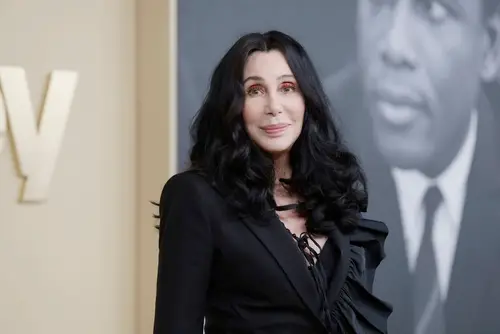
Cher has been a star for decades, but Twitter made her into a political lightning rod. Her candid, sometimes all-caps tweets about Donald Trump and other politicians went viral regularly. She became a liberal symbol almost by accident, with fans eagerly awaiting her next post. To conservatives, she represented Hollywood elitism at its loudest.
Her unapologetic style made her both beloved and mocked. Some people dismissed her as just another celebrity mouthing off, but others saw genuine passion. Regardless, her social media presence gave her new cultural relevance as a political voice. Cher is proof that even offhand online comments can turn stars into symbols.
13. Jon Voight
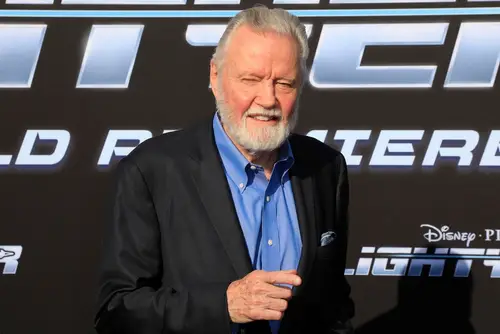
Jon Voight was once known mostly as an Oscar-winning actor, but his late-career embrace of conservative politics redefined him. He became one of the few Hollywood stars openly praising Donald Trump, often posting videos in support. This made him a counterweight to the many liberal voices in entertainment. Suddenly, his political stances eclipsed his acting achievements.
Voight’s transformation into a conservative symbol wasn’t exactly intentional, but it became inevitable given the polarized climate. He found himself at rallies and in viral clips, his speeches shared by right-wing media. For fans, he represented a brave Hollywood dissenter. For critics, he was another actor using fame to push personal politics.
14. Britney Spears
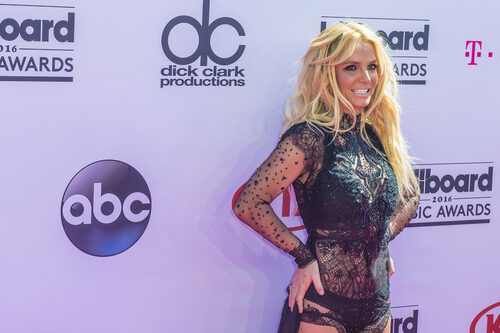
Britney Spears spent years trying to reclaim her image, but her conservatorship battle turned her into a political flashpoint. The #FreeBritney movement wasn’t just about pop culture—it raised broader questions about women’s rights, autonomy, and the legal system. Lawmakers and activists rallied to her cause, seeing it as a symbol of systemic injustice. Britney herself became a face of legal reform without asking for it.
As her fight gained momentum, it opened conversations about conservatorship laws nationwide. Fans who once only cared about her music suddenly saw her as part of a political cause. Even after her release, Britney’s story continues to spark debate about individual freedoms. It’s a case where personal struggle accidentally transformed into political symbolism.
This post 14 Celebrities Who Accidentally Became Political Symbols was first published on American Charm.


